| Never mind Pet Sounds. Good record, but a totem. That leaves
three great Beach Boys albums. First comes a fun-fun-fun best-of: With the
canonical Endless Summer deleted, settle for 2003's longer, less pristine
Sounds of Summer. The other two are quickies that fit neatly on one must-own
CD: Buy Smiley Smile/Wild Honey while EMI lets you.
Smiley Smile and Wild Honey get respect now, but in 1967 they peeved
hard-core Pet Sounds fans, who were waiting gape-mouthed for Smile, described
by those in the know as the American Sgt. Pepper -- proof that our Bea-boys
belonged in the same league as their Bea-boys. But Brian went bonkers,
Mike Love got busy, and we ended up with only "Good Vibrations"
and "Heroes and Villains" -- stopgap singles that made it onto
the belittlingly titled Smiley Smile -- and dribs and drabs thereafter.
Only you know what happened? Brian Wilson survived his saner brothers
and rebuilt his career, which the completely rerecorded SMiLE is supposed
to crown. Since much of Wilson's 2004 Gettin' In Over My Head could have
been sung from a crypt, this seemed like a terrible idea. Instead, it's
a triumph.
SMiLE began as a concert concept for Wilson's expert alt- rock road band,
which by 2002 had exhausted Pet Sounds. Never completed, SMile existed
only as a jumble of alternate versions, song fragments and ill-cataloged
tapes. Sifting through these was a collaborator as crucial as lyricist
Van Dyke Parks: keyboard player, harmony vocalist and "musical secretary"
Darian Sahanaja. With Sahanaja and Parks jogging his memory, Wilson revised
and composed until the best pieces formed a forty-seven-minute whole that
started shortly before "Heroes and Villains" and climaxed with
"Good Vibrations." While no symphony, it cohered and flowed.
The sparer, simpler recorded version follows the pattern of the ecstatically
reviewed live performances. Anchored by deft quotes and thematic repetitions,
SMiLE is beautiful and funny, goofily grand. It's looser and messier than
Sgt. Pepper and, one suspects, always would have been. But its sui generis
Americanism counterbalances its paucity of classic pop songs. Not in the
same league -- just ready to play a World Series.
Although Parks is a well-traveled arranger who must have left some marks
on Wilson's music during their hash-fueled 1966-67 brainstorming sessions,
his words do the talking. They're poetic in a manner Wilson has no gift
for: now idiomatic, now archaic, now obscure, pervaded by images of fleeting
youth and a frontier that stretches to Hawaii. Although stoned confusion
and mild pastoral pessimism are endemic, the world they evoke is as benign
as a day at the beach - yet less simplistic (and deceptive) than the Beach
Boys' fantasies of eternal Southern California teendom. In this the lyrics
are of a piece with the jokey songlets of Smiley Smile, where five SmiLE
titles first surfaced, and the good-natured rock & roll recidivism
of Wild Honey. What elevates them into something approaching a utopian
vision is Wilson's orchestrations: brief bridge melodies, youthful harmonies
more precise and uplifting now than when executed by actually existing
callow people and an enthralling profusion of instrumental colors. Trombone,
timpani, theremin and tenor sax brush by and disappear; a banjo shows
its head; strings vibe around; woodwinds establish unexpected moods and
pipe down.
That the pros who surround Wilson are up to all of this is gratifying
but not startling. What the auteur himself had in him was more questionable.
And that's the central miracle of this gift of music. Wilson's voice has
deepened and coarsened irreparably. Although he hits the notes, he can't
convey the innocence SMiLE's content seems to demand. But he can convey
commitment and belief -- belief that his young bonkers self composed a
work that captured possibilities now nearly lost to history. SMiLE proves
that those possibilities are still worth pursuing.
ROBERT CHRISTGAU
(Rolling Stone)
|
|
The white whale of '60s record-making, the Beach Boys' aborted SMiLE
album gradually gained a legend that not only inflated its importance
and its complexity, but gave credence to an odd notion -- that completing
it, then or ever, was impossible. In truth, SMiLE should have been released
and forgotten, reissued and reappraised, and finally remastered for the
digital era and ushered into the rock canon ever since Brian Wilson halted
work on it in May 1967 (after an exhausting 85 recording sessions). Instead,
it languished in the vaults and remained the perfect record -- perfect,
of course, because it had never been finished. Reports that the recording
of "Mrs. O'Leary's Cow" had caused a nearby building to burn
down and whispers of "inappropriate music" gave it the character
of a monster, one that cursed all those who approached it and claimed
the heart and mind of its closest participant. Wilson's love of "feels"
-- short passages of cyclical music that could be overdubbed and rearranged
countless times -- had made 1966's "Good Vibrations" the ultimate
pocket symphony, but had also quickly spiralled into the instability that
consumed him during its follow-up, "Heroes and Villains," projected
to be the centerpiece of SMiLE.
Happily, a new recording of SMiLE by Brian Wilson reveals the record
as nothing more or less than a jaunty epic of psychedelic Americana, a
rambling and discursive, playful and affectionate series of song cycles.
Infectious and hummable, to be sure, and a remarkably unified, irresistible
piece of pop music, but no musical watershed on par with Sgt. Pepper's
Lonely Hearts Club Band or Wilson's masterpiece, Pet Sounds. For the first
time ever, the program for SMiLE was compiled, after Brian Wilson listened
to the original recordings with his musical midwife, Darian Sahanaja of
the Wondermints (which has long functioned as Wilson's live backing band),
and worked them into a live show, then an album recording. The work that
evolved divides into three sections: SMiLE begins with Americana, which
takes the dream of continental expansion from the old Spanish town saga
of "Heroes and Villains" to the landing at Plymouth Rock and
the end of the frontier at Hawaii; it continues with a Cycle of Life that
progresses from the virginal grace of "Wonderful" to the simultaneous
peak and decline of the creative life on "Surf's Up"; and ends
with an environmental cycle called The Elements, which includes "Vega-Tables,"
(Earth), "Wind Chimes" (Air), "Mrs. O'Leary's Cow"
(Fire), and "In Blue Hawaii" (Water).
Since Wilson himself was previously the most opposed to SMiLE appearing
in any form, it's a considerable shock that this new recording justifies
even half of the promise that fans had attached to it. Everything that
Wilson and his band could control sounds nearly perfect. Every instrument,
every note, and every intonation is nearly identical to the late-'60s
tapes; one has to wonder whether vintage hand tools weren't acquired for
"Workshop" and Paul McCartney wasn't flown in to add chewing
noises to "Vega-Tables." (The players did, however, book time
at one of Brian's old haunts, Sunset Sound, and utilized a '60s tube console
to record their vocals.) No, the harmonies here aren't the Beach Boys'
harmonies, and Brian's vocals aren't the vocals he was capable of 37 years
ago, but they're excellent and (best of all) never distracting. Aside
from the technical acumen on display, Wilson has also, amazingly, found
a home -- the proper home -- for all of the brilliant instrumental snippets
that lent the greatest part of the mystery to the unreleased SMiLE. Van
Dyke Parks' new (or newly heard) lyrics fit into these compositions, and
the work as a whole, like hand in glove. (The former instrumentals include
"Barnyard"; "Holiday," which is here called "On
a Holiday"; "Look," which is now "Song for Children";
and "I Love to Say Da-Da," which is now part of "In Blue
Hawaii.") Most surprisingly, nearly all of this thematic unity was
accomplished by merely reworking the original material already on tape,
which proves that Wilson was never very far from finishing SMiLE in 1967.
(It's very likely that the gulf was psychological; SMiLE had few supporters
among Brian's closest friends and family.) Hopefully, Capitol is readying
a Smile Sessions box set to release all of the vintage material, but it's
clear that nothing they dig up from the vaults will be able to match the
unity displayed by this attractive new recording of SMiLE. It's up to
the standards of anyone who's ever scoured the bootlegs to create a SMiLE
tape, and it beats them all, which is the highest compliment. So, if you've
never been burdened with a friend's SMiLE tape before, count yourself
lucky that Brian Wilson's is the first you'll hear. And if you have heard
a few, prepare to listen to them much less religiously. (by John Bush,
AMG)
|
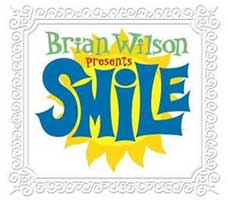
 Inselplatte
Inselplatte  #1 in Jahresliste
#1 in Jahresliste  Plattentipp
Plattentipp 

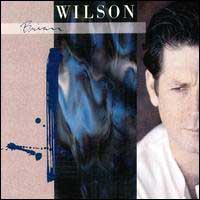
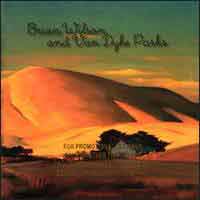
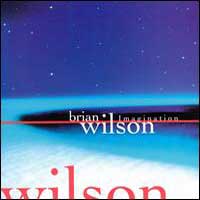

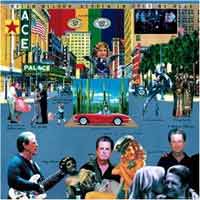
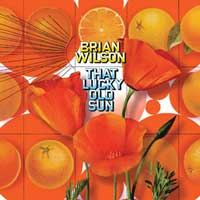




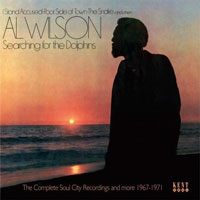
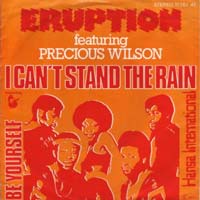


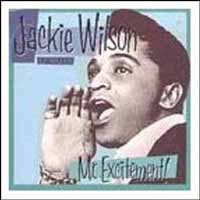
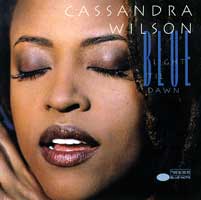
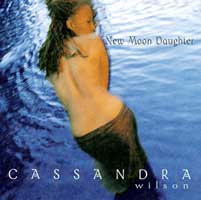
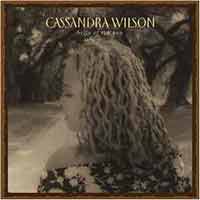

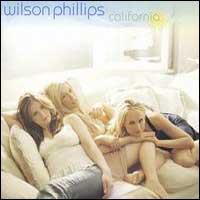
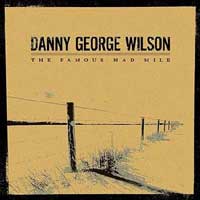

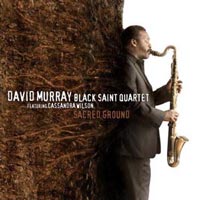












 eins von 1001 Alben, die Ihr hören solltet, bevor das Leben vorbei ist! (2008)
eins von 1001 Alben, die Ihr hören solltet, bevor das Leben vorbei ist! (2008) 